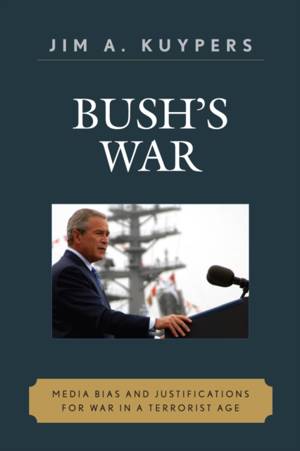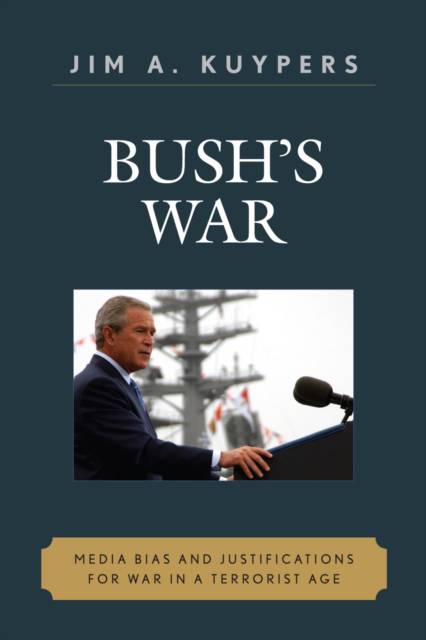
- Afhalen na 1 uur in een winkel met voorraad
- Gratis thuislevering in België vanaf € 30
- Ruim aanbod met 7 miljoen producten
- Afhalen na 1 uur in een winkel met voorraad
- Gratis thuislevering in België vanaf € 30
- Ruim aanbod met 7 miljoen producten
Zoeken
€ 84,95
+ 169 punten
Uitvoering
Omschrijving
While many books have offered a take on the attacks of 9/11, one area has been comparatively ignored: presidential justifications for war in the age of terrorism. Specifically, what did President Bush say to justify American military actions in the post-9/11 world? And how did the public hear what he said, especially as it was filtered through the news media? The eloquent and thoughtful Bush's War shows how public perception of what the president says is shaped by media bias. Jim A. Kuypers compares Bush's statements with press coverage, arguing that the nature of American public knowledge concerning our role in the world has been changed-not by 9/11, but by the subsequent argumentative back-and-forth between Bush and the press.
Specificaties
Betrokkenen
- Auteur(s):
- Uitgeverij:
Inhoud
- Aantal bladzijden:
- 210
- Taal:
- Engels
- Reeks:
Eigenschappen
- Productcode (EAN):
- 9780742536531
- Verschijningsdatum:
- 5/10/2006
- Uitvoering:
- Paperback
- Formaat:
- Trade paperback (VS)
- Afmetingen:
- 150 mm x 214 mm
- Gewicht:
- 317 g

Alleen bij Standaard Boekhandel
+ 169 punten op je klantenkaart van Standaard Boekhandel
Beoordelingen
We publiceren alleen reviews die voldoen aan de voorwaarden voor reviews. Bekijk onze voorwaarden voor reviews.







